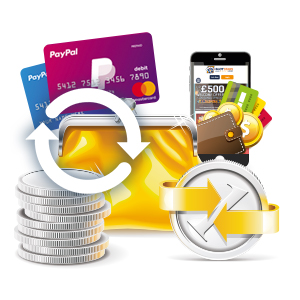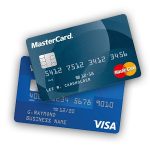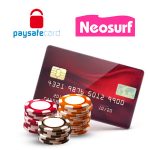Banking Methods: How to Deposit & Withdraw in a Kiwi Casino

The NZ government states very categorically in the 2003 Gambling Act that Kiwis can gamble online provided the casino is located outside NZ jurisdiction. So, while Kiwis can gamble online, you won’t find any online gaming site within the country. Additionally, the winnings made from online gambling are exempted from annual income tax reports.
And when it comes to carrying out financial transactions over the internet in offshore platforms, it is upon any interested players to make sure that the house has systems in place to guarantee maximum protection. So, for 100% safe and secure transactions to and from the casino, the most reliable sites that accept Kiwis will adhere to international casino banking regulations such as;
- The casino website should be using 128-bit SSL security encryption for converting transactional information into strings of unbreakable code to guarantee the security
- According to international anti-money laundering regulations, players have to use the same payment options to deposit and withdraw from the casino, except for cases where the payment option cannot be used for cash outs.
- For any transaction to be processed, your account details must match the financial information that you provide the casino.
- Players will also have to verify their identity by offering identity information before they can be allowed to withdraw from the platform. Kiwis may have to prove their physical location by submitting documents such as utility bills or bank statements.
Which Banking Options Can Kiwis Use to Gamble Online?
There is a variety of banking methods that are accepted by Kiwi casinos for flexible deposits and withdrawals. Here’s a breakdown of what Kiwis will find in casinos that accept them to play for real money;

Credit and Debit Cards
Since online payment became a thing in New Zealand, virtually all credit and debit cards for local banks can be used to make payments online. Overseas casinos accepting Kiwis, therefore, allow players to deposit and withdraw using their cards, especially for transactions that involve larger sums of money. Some of the most widely accepted credit and debit cards in Kiwi accepting casinos include Visa, MasterCard, Maestro, JCB, Discover, and American Express.

E-Wallets
Like credit and debit cards, e-wallets are another favorite option for online gaming, especially for gamers who don’t want to share their local bank account information with the casino. They’re great for Kiwis who are concerned about security in online casinos.
Typically, you need to authorize a funds transfer to your e-wallet from your bank account then do the actual transfer from the e-wallet into your casino account. The same process applies while you’re withdrawing from your online account, although some e-wallets have their proprietary cards where you can withdraw your balance from the ATM. The most popular e-wallets for casinos that accept Kiwis are such as Skrill, Neteller, EUteller, Entropay, and PayPal.

Prepaid Cards
Again, for Kiwis who wouldn’t like to share their banking information with online casinos, prepaid cards are another exceptional option. You simply buy a voucher at a kiosk then load a given amount of money based on the voucher value into your online casino account via a unique code.
Thus, there is no direct link between your bank account and the online casino account. However, the biggest downsides for prepaid cards is that the transactions can only be for small amounts and that they can’t be used for cashing out from the casino. In New Zealand, the most popular voucher of this kind is the PaysafeCard.

Wire Transfers or EFTs
Essentially, this mode allows you to transfer funds directly between your bank account and the online casino account. Additionally, for Kiwis who don’t want a direct connection between their bank account and casino account, there are third-party merchants that complete such transactions i.e. from your bank account to the casino. These merchants include the likes of POLi, iDeal, and Giropay.

E-Checks
This mode allows players to fill a check and then they send it to the casino and vice versa, the only difference being that unlike regular checks, you fill your details online. It’s time-consuming but exceptionally secure.
Casino Banking Limits, Transactional Fees
As a rule of thumb, you must confirm any limits that may be imposed by the house before you load or withdraw money to and from the casino. In most cases, gaming sites will have a maximum daily, weekly and even monthly withdrawal limit stated in their terms and conditions, and you also need to check if the limits apply to jackpot payouts.
And by the way, transactional limits are also influenced by the payment merchant that you decide to use. For transactional fees, on the other hand, most casinos don’t charge for deposits and withdrawals but individual payment merchants often have varying fees in place.
How to Deposit and Withdraw from a Kiwi Online Casino
To enjoy super smooth deposit and withdrawal processes, here are the steps that you should follow;
Bear in mind that in case you had claimed a bonus, you have to meet the wagering requirements and any other terms before the house can allow you to cash out. And the withdrawal speed will depend on the payment option that you picked. Usually, e-wallets are the fastest while bank transfers and e-checks take longest to be processed.
Furthermore, casinos often put withdrawals under a pending period (up to 48 hours) for security purposes and to allow you to reverse the withdrawal in case you change your mind after clicking the ‘Withdraw’ button.
Responsible Gambling
New Zealand players who may end up feeling the need to gamble compulsively have several ways put in place by reputable casinos to ensure that they gamble responsibly. In today’s world, there are countless options and avenues to gamble and thus things sometimes end up getting out of control. Here are reliable ways to keep you gambling responsibly;
- For starters you must understand that gambling should never be a way to earn a living, it’s just a fun activity that often ends up earning you extra money but if you lose, never chase losses, play responsibly.
- You can self-limit yourself to keep track of the time you spend gambling. The best casinos accepting Kiwis have a self-limitation option to help you control your urges.
- Ask for a deposit limit to be set on your account by the casino. This limit can be made on a daily, weekly, or monthly basis.
- Many casinos allow their members a ‘Cooling off’ period where you cannot use the account for as long as you want. This can be over a period of 24 hours, a week, or several months.
- You can also self-exclude the account for a period of 6 months or 1 year or even permanently. This will eliminate the possibility of reactivating the account to prevent impulsive gaming.
FAQs
In case you have more questions about banking in casinos that accept Kiwis here’s a look at answers to the most common queries.
Yes! Thanks to 128-bit SSL encryption, you should never be worried about the security of your information as long as you play in a legit Kiwi Casino.
No, as long as the payment option isn’t registered under your name, you can’t connect it to your casino account.
Deposits across all payment options are processed instantly unless there’s a problem that needs to be addressed.
Yes, if the casino allows reversals, you can do it as long as the pending period hasn’t elapsed.
